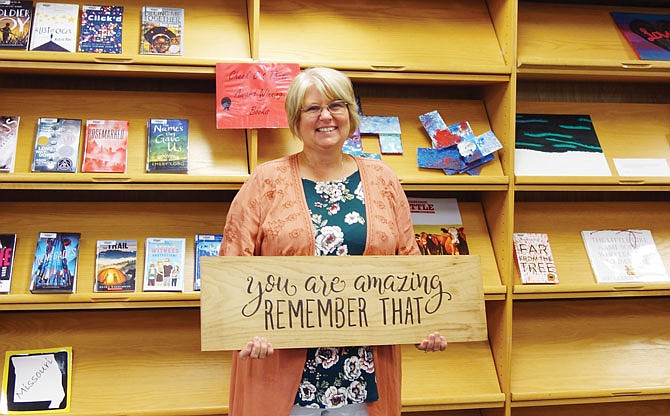KINGDOM CITY - Staff and parents at the North Callaway R-1 school district are wrestling with the same question that faces every school district in America.
What will school look like in the face of an ongoing global pandemic?
Guidance from the Callaway County Health Department and the Missouri Department of Elementary and Secondary Education, plus feedback from parents and staff participating in the district's Process Committee, are helping shape that answer. District nurse Sara Speight shared an update on the Process Committee during Tuesday evening's North Callaway Board of Education meeting.
Around 20 parents attended the last Process Committee meeting to discuss topics such as cleaning requirements, masking, bus transportation and more, Speight said.
Like other districts in the county, North Callaway plans to welcome students back to school in late August, only turning to distance learning if necessary.
The district does not currently plan to require students to wear masks.
"Most parents are not in favor of wearing a mask during everyday attendance," Speight said.
Speight said parents were worried about masks exacerbating asthma and other breathing issues.
According to the U.S. Centers for Disease Control, cloth face coverings shouldn't be used by "anyone who has trouble breathing." However, according to the Asthma and Allergy Foundation of America, individuals with mild or well-controlled asthma are unlikely to have trouble wearing a mask.
Those with moderate to severe asthma may be at higher risk from getting "very sick" from COVID-19, according to the CDC. COVID-19 can affect your respiratory tract (nose, throat, lungs), cause an asthma attack, and possibly lead to pneumonia and acute respiratory disease.
The CDC recommends all people 2 and older wear a cloth face covering in public settings and when around people from outside the household, and especially in settings when people are grouped close together. Cloth face coverings are recommended as a simple barrier to help prevent respiratory droplets from traveling into the air and onto other people when the person wearing the cloth face covering coughs, sneezes, talks or raises their voice. They're especially important because some people with COVID-19 don't show symptoms but are still capable of spreading the disease to others through the air.
Though students can space out in classrooms, it's harder to keep them the recommended 6-plus feet apart in buses, Transportation Director Doug Kee said.
"The plan is to operate our buses as usual," Kee said. "It wouldn't be economically feasible to do social distancing on buses and get students to school on time."
Decreasing the number of students per bus would greatly increase the amount of time needed to take students to and from school, and would require the district to pay more for bus driver's time and bus fuel, he explained. But the district does plan to assign seating in buses.
"We will attempt to seat family groups together, though we won't put an empty seat between families," he said. "That may be fun if we have a 12th-grader and a kindergartener in the same class."
The district doesn't plan to require masks on buses.
Committee participants also discussed continuing to allow students to dine in the cafeteria, rather than having them eat in classrooms as initially proposed for social distancing purposes.
The district plans to step up cleaning schedules. Buses will be cleaned every time they're used to transport students. Students will also be encouraged to wash their hands more frequently, including between classes, before eating lunch and after playing outside.
School board member Timothy Safranski asked if students who stay home from school due to illness or a fever will be required to take a COVID-19 test before returning. There are currently no plans to require such testing.
"Temperatures are not always an indicator of infection, and many of the infected do not run a fever," Superintendent Nicky Kemp pointed out.
North Callaway and the Callaway County Health Department will work together to address any cases that might arise, she said. If a student is diagnosed with COVID-19, the CCHD will have the authority to shut down the school building they attend, plus additional buildings if contact tracing indicates it might be necessary.
"We will not have to make that decision," Kemp said.
The COVID-19 pandemic will impact the district's revenue and expenses alike. Missouri has cut millions of dollars from funding for public schools. The district's 2020-21 budget has been altered to address expected pandemic-related expenses, Kemp said.
"We had a budget workshop and reviewed a lot of potential scenarios," she said.
The district has budgeted for water-bottle refillers for schools still relying on water fountains. They'll also be spending additional money on hand sanitizer and paper towels, along with other cleaning supplies - within the schools and in the transportation and sports departments.
The 2020-21 budget passed Tuesday includes a small surplus.
Process Committee meetings are open to the public. The next will take place at 6 p.m. July 13 at the North Callaway High School's media center.

